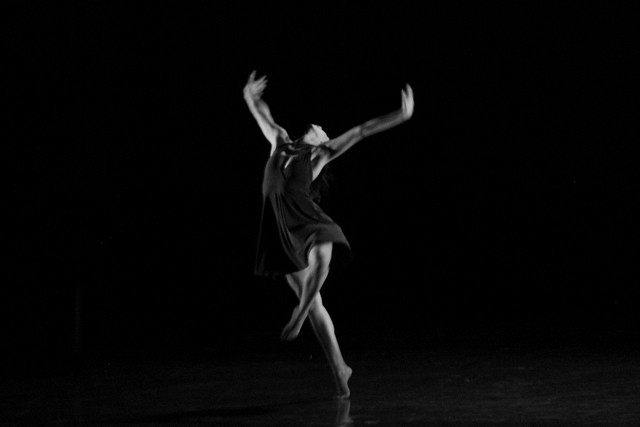
Aloha – Happy back to school / class / rehearsal month!
This month I’m so pleased to bring you a new guest contributor, Dr. Lynda Mainwaring, with an introductory post about the field of dance psychology. This is a topic I’ve wanted to introduce for a long time, and I’m so pleased to have Lynda offer to do it for us–she is on the faculty of Kinesiology and Physical Education, University of Toronto (Canada), and a registered Psychologist. She has been a longtime colleague of mine in IADMS, and I have enjoyed her many presentations on dance psychology over the years. I’m so glad to now be able to bring this important topic to 4dancers.org.
Pass it on!
Aloha,
Jan Dunn, MS
by Lynda Mainwaring, Ph.D., C. Psych.
Alexandra and Micah were skilled soloists who trained at prestigious schools. Their technique was flawless, and their artistry mesmerizing. They were loved around the world, yet, both suffered from intense anxiety that created muscle tension, stomach upset, elevated heart rate and a barrage of doubts about their performance. At times they were paralyzed with the fear of not living up to their usual perfect performance. Before major events they would psych themselves into a state that made them feel ill.
This is performance anxiety.
 Feeling a heightened sense of arousal and anxiety before a performance is common. A certain level of energy sparks a good performance. However, on occasion our thoughts and feelings can be out of control, and they can negatively impact performance. They can create a situation in which we think we are not good enough, or we fear that we may not be the right body shape. Before stepping on stage we may worry that we will miss the jump in the opening sequence.
Feeling a heightened sense of arousal and anxiety before a performance is common. A certain level of energy sparks a good performance. However, on occasion our thoughts and feelings can be out of control, and they can negatively impact performance. They can create a situation in which we think we are not good enough, or we fear that we may not be the right body shape. Before stepping on stage we may worry that we will miss the jump in the opening sequence.
What do you think about when you dance? What do you think about just before or after dancing? Do you experience performance jitters? Do you worry about what you look like, what others look like, or what others think about your dancing? These are the kinds of questions that often arise in performance. Knowing how to handle intrusive and sometimes negative thoughts, or how to manage performance anxiety, are some of the topics addressed by dance, sport and performance psychology. Today’s blog is about dance psychology in general. The next will be about managing your performance jitters.
What is Dance Psychology?
Dance psychology is a field that entertains the following questions, among others:
- how the mind can facilitate performance?
- how can performance anxiety can be managed?
- how do you recover from injury?
- how do you cope with the stressors of working in highly demanding situations?
It is an area of study and practice that uses research, theory and practitioner’s wisdom to address psychological issues related to dance and dancers. The field of dance psychology has evolved from sport psychology, which is some 50 years old. Dance psychology is about using the mind to enhance dance, improve well-being, and offset negative aspects of life in the unique and challenging world of dance. It is about using psychology and the mind to help us be the best that we can be.
Using The Mind In Dance
Often we overlook the importance of the mind despite knowing that the mind and body are intimately tied. The interaction between the two can have profound effects on our performance, health, motivation, and sense of who we are. Dance psychology can provide us with insights, skills, strategies and techniques to enhance dancing, create stronger selves and to improve our ability to navigate through the creative, challenging, and complex culture of dance.  There are numerous benefits of including psychological skills into the artistry, and athleticism of dancing. Here are some of the benefits of training your mind as well as your body:
There are numerous benefits of including psychological skills into the artistry, and athleticism of dancing. Here are some of the benefits of training your mind as well as your body:
- Improved management of performance jitters.
- Improved coping with the stressors in daily living.
- Increased confidence.
- Improved attention and focus.
- Identification of short and long-term goals to improve performance.
- Emotional regulation to move through performance highs and lows with greater ease, and reduced anxiety.
- Performance enhancement.
- Enhanced well-being and the ability to feel in control of your career and your life.
- Better energy management to help you with your resources.
- Enhanced injury management and coping.
Stay tuned: next time, I will provide some pointers on how to overcome and manage pre-performance nerves. Until then, dance with the joy and contentment of knowing that you are extraordinary.

BIO: Lynda Mainwaring is an Associate Professor in the Faculty of Kinesiology and Physical Education, University of Toronto, and a Registered Psychologist in Ontario. Her background in human kinetics, performance and rehabilitation psychology focuses her research and professional practice on emotional sequelae of mild traumatic brain injury in sport, psychological impact of injuries in sport, dance and work; perfectionism, and performance enhancement. She is a member of the Research Committee for the International Association for Dance Medicine and Science, and is co-founder of the Canadian Centre of Performance Psychology. Dr. Mainwaring has presented and published over 200 works to international audiences.





!["Dança" by Luci Correia. Licensed under CC Attribution 2.0 Generic. [Changes to photo: filter added]](https://4dancers.org/wp-content/uploads/2015/10/Stage-Fright-pic2-Edit-.jpg)
